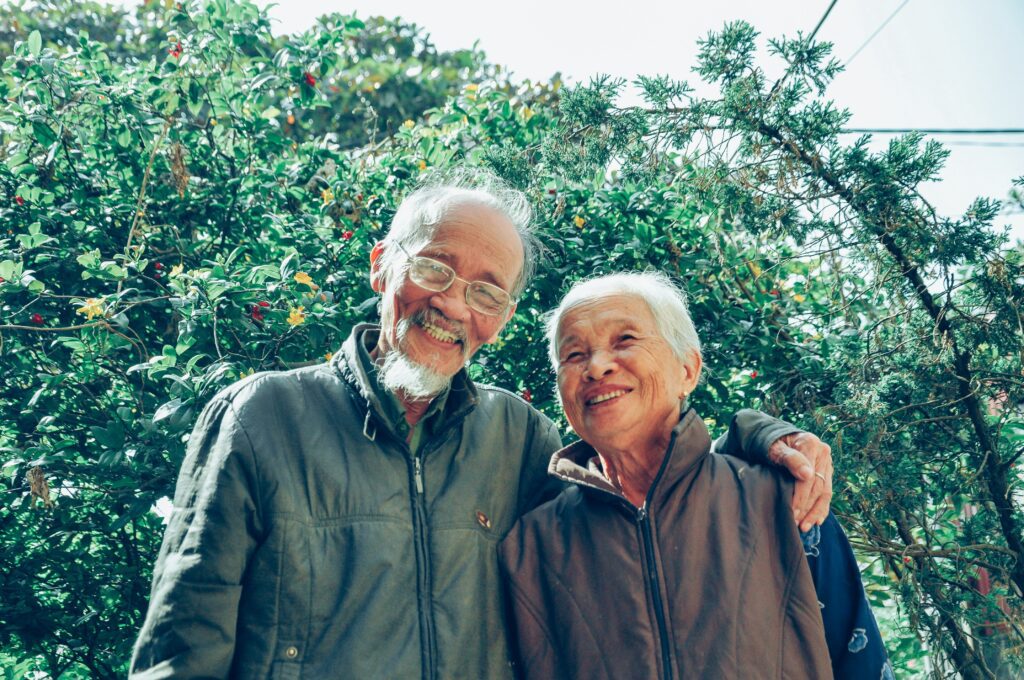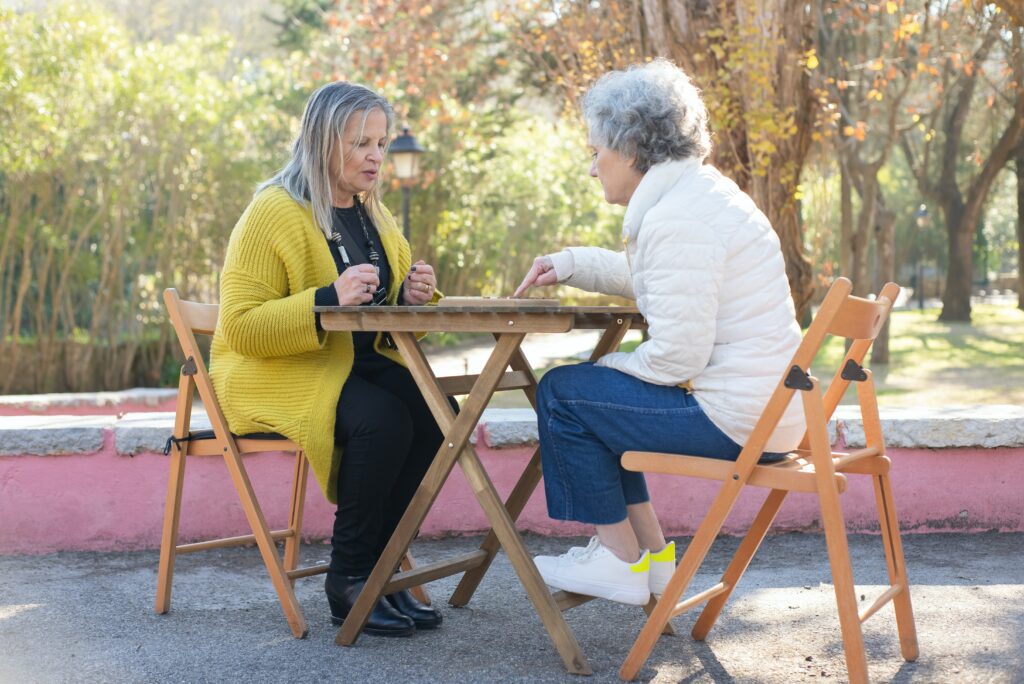Emotional Changes in Old Age
Many people equate growing older with changes in how their bodies work, but few know that aging also brings emotional changes. The challenges may be exacerbated by the addition of changes brought on by dementia or other tough situations to the changes brought on by natural aging.
However, becoming more aware of the emotional requirements of the elderly will help you offer the greatest assistance possible.
Aging is frequently not a gradual decrease. A surprise diagnosis or an accident may happen to certain adults, which immediately affects their daily lives. A once-healthy, active person may become bedridden and slip into a severe depressive state.
We address the emotional requirements and changes of elderly persons in this post and the personal and professional help you can provide at home.
Emotional Changes in Old Age
Although everyone has basic emotional requirements, are you aware of those needs for your older relatives? What emotional requirements do seniors have?
Most people focus on the limitations and physical changes that accompany aging, but emotional changes are also quite typical as individuals age. In general, aging can be quite frustrating, but older persons have particular social, psychological, and emotional requirements that change throughout time.
Although everyone has basic emotional requirements, are you aware of those needs for your older relatives? What emotional requirements do seniors have? Most people focus on the limitations and physical changes accompanying aging, but emotional changes are also quite typical as individuals age.
Aging in place is frequently not a gradual decrease. A surprise diagnosis or an accident may happen to certain adults, which immediately affects their daily lives. A once-healthy, active person may become bedridden and slip into a severe depressive state.
We address the emotional requirements and changes of elderly persons in this post and the personal and professional help you can provide at home.
Alzheimer’s disease can also impair attention spans, which can cause agitation, irritability, and even aggression. The emotional requirements of a person with Alzheimer’s may become even more challenging to manage since people may lose faith in their moral judgment and experience social stigma due to their illness.
What Are the Elderly’s Emotional Needs?
Emotional changes in the aged are, as you might expect, a roller coaster of highs and lows. While some older persons claim to experience daily happiness compared to younger adults, others suffer from geriatric depression.
According to studies, older women who report receiving less emotional assistance than they do are twice as likely to pass away. When a huge group is present, we could occasionally take emotional support for granted.
However, it’s possible that your elderly parents don’t have a sizable community that can offer them a lot of emotional support. Every chance you get, affirm your aging loved one’s worth and try your best to understand them.
Your parents may experience helplessness, loneliness, rage, or even denial as they age. Living alone could make bad feelings much worse.
Here are three emotional requirements of senior family members in your life:
Security & Safety
Older people fear falling more than they fear robbery, financial strain, or health problems.
Older folks must live in a safe and secure environment to be healthy. Check your elderly parent’s house frequently for fall hazards, including clutter. To protect their safety, see if they lock their doors at night or set up a home security system.
Connection
Everyone needs to feel connected, regardless of age. Feeling emotionally and physically cut off from others can harm one’s health. Due to COVID-19, 56% of older adults reported feeling isolated with infrequent social interaction, as per research. Use technology to connect with aging family members near and far.
Autonomy
Seniors have lived as self-sufficient individuals their entire lives. They may find it difficult to shift to being older and depending on others.
Seniors who need frequent care but wish to maintain their freedom can consider hiring in-home caregivers. Older people’s physical and emotional requirements, including those related to meal preparation, bathing, dressing, etc., are met by an in-home caregiver.
Are Older Adults Experts at Emotional Control?
It is nevertheless possible that younger and older adults differ in how well they can achieve their emotion-regulation goals even when younger and older adults respond to emotional stimuli comparably and have the same emotional goals.
According to studies, older people are “better” at controlling their emotions in some areas. Given the numerous emotion-regulation tactics one could use, one’s skill in managing emotions may influence the strategies one chooses, their effectiveness, and cognitive costs.
What Are the Boundaries?
Unfortunately, the growing trend in emotional well-being stops—and even reverses—when a person approaches late age. A few years before death, the effect abruptly falls, possibly due to physical and cognitive deterioration and difficulty avoiding unfavorable situations.
Although older adults can control their emotions in response to mild, brief, or circumscribed stressful situations by using proactive (antecedent-focused) emotion-regulation techniques like avoidance or reappraisal, older adults may struggle to do so when faced with intense, ongoing, or unavoidable stressors.
Elderly Depression & Emotional Support
For someone who has been working steadily for decades, retirement may seem like a dream, yet boredom and despair can equally be the result of inaction. Seniors who don’t keep their bodies and minds active in the world run a far higher chance of developing depression.
Unfortunately, depression among seniors is fairly frequent. As someone close to them begins to lose their life, feelings of loneliness and isolation are frequent. Depressed people may feel unworthy, making it harder to maintain emotional connections with others.
However, feeling cut off from the outside world can be just as harmful as any long-term medical issue. According to the AARP, long-term isolation is about as unhealthy as smoking a pack of cigarettes each day.
Most people, regardless of age, desire a sense of community. Without a way to assist elderly in joining and participating in some communities, no comprehensive emotional assistance for the elderly would be complete.
Physical Pain
Could an underlying illness be why your loved one is acting out emotionally? Remember that mood swings and other emotional disturbances could have a physical reason. For example, millions of senior citizens manage chronic pain.
Dealing with chronic pain or a physical ailment can be draining, unpleasant, and depressing for seniors. Your loved one’s mood swings may result from their responding in pain or annoyance to a physical issue that you might not even be able to perceive.
Other times, seniors may experience major mood swings due to personal frustration with their aging bodies and way of life. When they discover they can no longer move as easily as they once could or feel as though they are losing some of their freedom, many older folks become frustrated.
Be careful to assist your loved one in getting first aid or medical care if they exhibit chronic sickness or pain symptoms. In other situations, elders could benefit from having a trained companion or caretaker around to help them manage their discomfort as they go about daily activities, like walking, performing chores, or using the restroom.
Conclusion
Relationships, however, are a two-way street, and older persons are also quite good at avoiding confrontations with their loved ones. It’s not just social partners who defuse disagreements with older folks. Older people frequently have deeper relationships with their partners and a deeper understanding of their friends’ and families’ personalities.
In essence, they are adept at sustaining harmony, which is essential for preserving high levels of wellness.
However, arguments and confrontations do occur even in the healthiest of partnerships. In many of these scenarios, older individuals employ emotion control and coping mechanisms designed to foster relationship harmony and subdue feelings of resentment and wrath.






